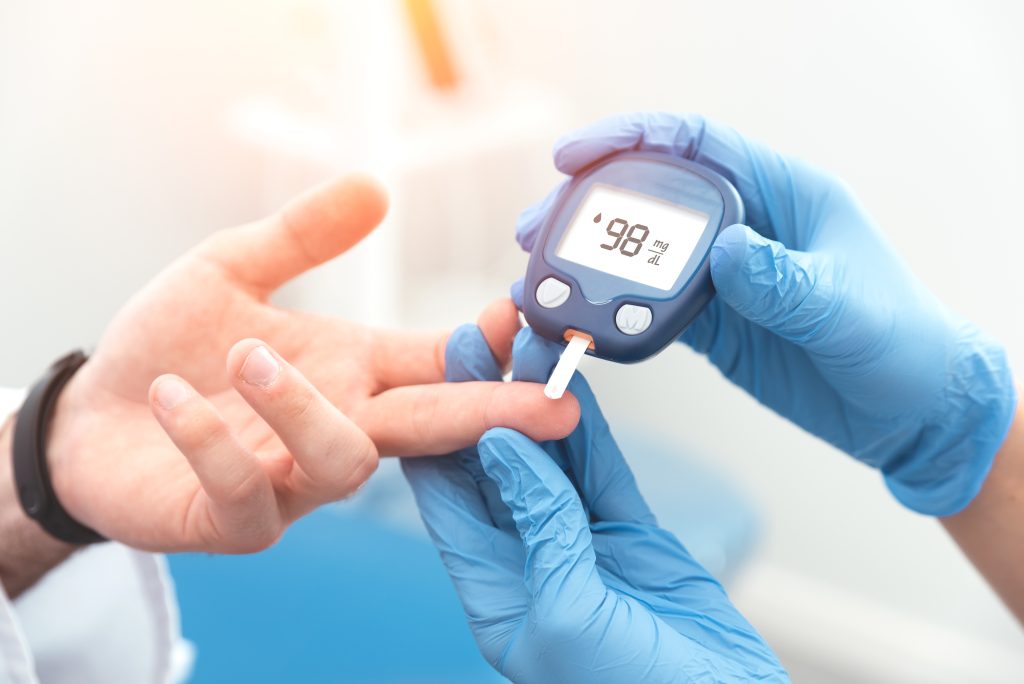Welcome to our beginner’s guide on managing diabetes! Whether you’ve been recently diagnosed or are seeking more information, this blog post is here to provide you with essential knowledge and tips for navigating life with diabetes. Understanding this condition is the first step towards effectively managing it, so let’s dive in and learn all about diabetes together.
Understanding Diabetes
Diabetes is a chronic health condition that affects how your body processes blood sugar, also known as glucose. When you have diabetes, your body either doesn’t produce enough insulin or can’t effectively use the insulin it produces. Insulin is a hormone that helps regulate blood sugar levels and allows cells to use glucose for energy.
There are different types of diabetes, with type 1 and type 2 being the most common. Type 1 diabetes occurs when the immune system mistakenly attacks and destroys insulin-producing cells in the pancreas. On the other hand, type 2 diabetes is characterized by insulin resistance, where cells don’t respond properly to insulin.
Managing diabetes involves monitoring blood sugar levels regularly, following a healthy diet plan, staying active, taking medications as prescribed by healthcare providers if needed, and making lifestyle changes to keep blood sugar levels in check. By understanding how diabetes impacts your body and taking proactive steps to manage it effectively, you can lead a fulfilling life despite this condition.
Types of Diabetes
Diabetes is a complex condition that manifests in different forms. Type 1 diabetes occurs when the immune system attacks the insulin-producing beta cells in the pancreas, leading to little to no insulin production. On the other hand, type 2 diabetes is characterized by insulin resistance, where cells do not respond effectively to insulin.
Gestational diabetes develops during pregnancy and can increase both the mother’s and child’s risk of developing type 2 diabetes later in life. There are also rarer types such as monogenic diabetes and cystic fibrosis-related diabetes that stem from specific genetic or medical conditions.
Understanding the distinct characteristics of each type of diabetes is crucial for effective management and treatment strategies tailored to individual needs. It’s essential for healthcare providers to accurately diagnose the type of diabetes a person has in order to provide appropriate care and support.
Causes and Risk Factors
Understanding the causes and risk factors of diabetes is crucial for effectively managing this condition. Diabetes develops when the body either doesn’t produce enough insulin or can’t use insulin properly. Type 1 diabetes is believed to be an autoimmune disease, where the immune system mistakenly attacks insulin-producing cells in the pancreas.
On the other hand, type 2 diabetes is often linked to lifestyle factors such as being overweight, having a sedentary lifestyle, and consuming a diet high in processed sugars and unhealthy fats. Genetics also play a role in predisposing individuals to developing diabetes.
Other risk factors include age, family history of diabetes, high blood pressure, gestational diabetes during pregnancy, and ethnicity. Individuals from certain ethnic groups like African American, Hispanic/Latino, Native American, Asian American are at higher risk for developing type 2 diabetes.
By understanding these causes and risk factors associated with diabetes, individuals can take proactive steps towards prevention or better management of their condition through lifestyle modifications and regular medical check-ups.
Symptoms to Look Out for
When it comes to diabetes, being aware of the symptoms is crucial for early detection and management. Some common signs to watch out for include frequent urination, especially at night, increased thirst, unexplained weight loss, extreme fatigue or irritability, blurry vision, and slow-healing wounds.
Additionally, tingling or numbness in the hands or feet, recurrent infections (such as yeast or urinary tract infections), and darkened areas of skin may also indicate potential diabetes issues. It’s essential not to ignore these symptoms but instead seek medical advice promptly.
If you notice any of these warning signs persisting over time or worsening in intensity, consult a healthcare professional for proper evaluation and diagnosis. Remember that recognizing symptoms early can lead to better outcomes in managing diabetes effectively.
Diagnosis and Treatment Options
When it comes to diabetes, early diagnosis is key. If you suspect you may have diabetes, it’s important to see a healthcare provider for proper testing. Diagnosis typically involves blood tests to measure glucose levels and determine if they are within the normal range.
If diagnosed with diabetes, treatment options will vary depending on the type of diabetes and individual factors. For Type 1 diabetes, insulin therapy is essential as the body does not produce insulin. Those with Type 2 diabetes may be able to manage their condition through lifestyle changes such as diet and exercise, or medication if needed.
Monitoring blood sugar levels regularly is crucial in managing diabetes effectively. This can help individuals understand how different foods, activities, and medications impact their glucose levels.
It’s important for individuals with diabetes to work closely with their healthcare team to develop a personalized treatment plan that fits their unique needs. Regular check-ups and adjustments to treatment plans may be necessary over time as lifestyle factors change or the condition progresses.
Lifestyle Changes for Managing Diabetes
Managing diabetes involves making lifestyle changes that can have a significant impact on your overall health and well-being. One of the key aspects is maintaining a healthy diet by focusing on whole foods such as fruits, vegetables, lean proteins, and whole grains. By controlling your carbohydrate intake and monitoring portion sizes, you can better manage your blood sugar levels.
Regular exercise is also crucial for managing diabetes. Physical activity helps improve insulin sensitivity and can assist in lowering blood sugar levels. Aim for at least 150 minutes of moderate-intensity exercise per week, such as brisk walking or cycling.
Getting an adequate amount of sleep is essential for managing diabetes as well. Poor sleep habits can affect blood sugar control and insulin sensitivity. Prioritize getting seven to nine hours of quality sleep each night to support your overall health.
In addition to diet, exercise, and sleep, stress management plays a vital role in diabetes management. High levels of stress can elevate blood sugar levels, so incorporating relaxation techniques such as meditation or yoga into your routine can help lower stress levels effectively.
Tips for Living Well with Diabetes
Living with diabetes can present its challenges, but there are ways to manage it effectively. One tip is to prioritize a balanced diet rich in fruits, vegetables, whole grains, and lean proteins. Monitoring your blood sugar levels regularly is crucial in understanding how different foods affect your body.
Staying physically active can also help regulate blood sugar levels and improve overall health. Finding an exercise routine that works for you, whether it’s walking, swimming, or yoga, can make a significant difference. Additionally, managing stress through relaxation techniques like deep breathing or meditation can help keep blood sugar levels stable.
It’s important to communicate openly with your healthcare team and follow their recommendations closely. Taking medications as prescribed and attending regular check-ups are essential for maintaining good health while living with diabetes. Remember that self-care plays a vital role in managing the condition effectively and leading a fulfilling life despite the challenges it may bring.
Resources and Support for Diabetics
Finding the right resources and support is crucial for individuals living with diabetes. Thankfully, there are various options available to help navigate this journey successfully.
Support groups can provide a sense of community and understanding among those facing similar challenges. Connecting with others who share your experiences can be incredibly empowering and comforting.
Online platforms offer a wealth of information, from educational materials to forums where you can ask questions and seek advice from experts or peers. These digital resources can be valuable tools in managing your condition effectively.
Many healthcare providers also offer specialized diabetes education programs designed to equip patients with the knowledge and skills needed to take control of their health. These programs often cover topics such as meal planning, exercise guidelines, medication management, and blood sugar monitoring techniques.
Additionally, reaching out to local organizations or charities dedicated to diabetes advocacy may uncover additional resources and support services available in your community. Remember, you are not alone on this journey – there are plenty of resources ready to assist you along the way.
Conclusion
Managing diabetes is a journey that requires dedication and perseverance. By understanding the different types of diabetes, recognizing symptoms early on, seeking proper diagnosis and treatment, making necessary lifestyle changes, and finding support resources, individuals can effectively manage their condition and lead fulfilling lives. Remember, living well with diabetes is possible with the right knowledge and tools. Stay informed, stay proactive, and prioritize your health to thrive despite the challenges posed by this chronic condition.



